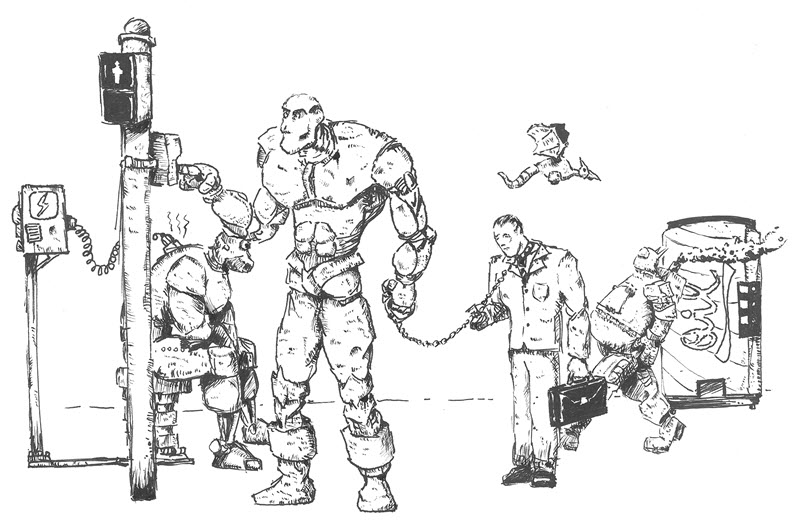Doubts on CMS
What CMS is more convenient, Open Source or Propietary Solution?
Buy or rent? Left or right? What CMS will you base your next web project on?
Neither is wrong, but a wrong choice has consequences. We will objectively explain what you should keep in mind to succeed with your next digital asset...
Background

- We have much experience with WordPress
- We dominate WP SEO, owning websites in top positions
- We can say that we know well the value of WordPress for web projects...
- ...And still eData has a strong commitment with a proprietary CMS... What is failing here?
We are not perfect but with us things fail way less than in any other place: keep reading :)
Commercial evolution of Web Content Management Systems
Since the WWW deserved the prefix "modern", web design and development market has gone through 4 phases:
The web design companies needed to serialize type-pages to create increasingly large websites, so this is one of the causes for the oncept of CMS (content management system). The concept was to cut costs and reduce time to market; because of the immaturity of the Open Source publishing platforms like WordPress, Joomla, Concrete5 and many more, web design companies had to create something new, with varying degrees of success.
Some web design companies realized an interesting side effect: customers who wanted to quit with his services were facing serious difficulties in obtaining new online presence after strong initial investment, since the propietary CMS was so "dark" that the web was practically useless in different hands. Markets began to speak of captive customers, alluding to those clients preferring to stay with a mediocre supplier rather than face the fear of losing all or part of its website (and obviously any visibility in search engines).
At the height of the Microsoft monopoly, under the umbrella of the free licenses movement, the world of website design lived the launch and development of the nowadays most popular open source CMSs. Many web design firms became strong using good will words like "free", "open", "cost reduction" and "Universal". Those business in need of web presence started running away from the harmful phenomenon of captive customers, to fall into the arms of Open Source as a bounce effect from what was considered a "nasty habit of making long term clients"(if you had a propietary CMS then you were a suspected website hijacker).
Phase 3 has lasted long enough for uncovering many suposed to be "free code good will guys" and now we are immersed in a transition towards 4th phase.
What seemed an attainable utopia began to suffer the consequences of success and the cooperative and open nature of the Open Source content management systems. We will take the symptomatic example of this 4th stagewhat is going on?
- Platforms like WordPress achieve widespread success, it is estimated that 23% of the WWW runs on WP.
- Any apprentice hacker can attack a WP website by gathering some literature or Googling.
- The core of a CMS is not flexible, so added functions were invented: plugins, modules, addons, etc
- All these extras leave room for security flaws from various sources, this makes it easier for hackers
- The client explains the needs of the project: then developers must make changes on WordPress stressing it to the limit, where things tend to go wrong
- Bending WordPress can help optimizing for SEO but hidden costs soar. When panic time arribes you will know what we mean.
- If you do not bend WordPress you will not get SEO potential for your website, so it will be a solid web visited by a few people and do little business with it.
- Leaving Wordpress unrecognizable prevents the core from updating leaving even more space for attack or sudden death.
- If you hear "yes, you can upgrade" it is because they put hours on the case, instead of creating and proposing improvements your provider will be rowing against the flow.
- Each "plugin" creator (essential extras for WP) competes with others to make his work popular, there is no general style book and there is room for many conflicts.
- Your providers must necessarily use of the time you pay for putting out fires, instead of innovating and looking for new and better solutions.
- A heterogeneous system like WordPress has not optimized performance and demands much more than other solutions from a web server.
- Last but not least, if you believe these are lies, think the other way round: that is what Open Source did to honest propietary system developers.
There is an axiom in engineering: the more parts greater probability of failure.
Therefore companies developing websites that need complex web projects (and yours will probably be one of those) pass budgets that are generally between 30 and 60% more expensive than we can propose from eData. They do not do it just for greed: they know in advance what's behind the corner, so they have their back covered on beforehand.
eData also competes to enter WordPress web based projects (in cases of client's express request), so again we turn to proven facts, not the sophist discourse that should be away forever. We work primarily on our own RELEVANT CMS which of course we know in detail, we know who is who and what is doing what; in the worst case if something goes wrong we know immediately where the failure comes from, amend it and make sure it never happens again. Instead anyone working in collaborative environments such as WordPress can go crazy looking for an error that can come from virtually anywhere and from any random interaction, so experience is helpful but not a guarantee of solving the error.
RELEVANT does not break because we don't need to bend it to get what we need from it. It is flexible, safe and extremely effective for SEO. Being agile and flexible makes our CMS great for the ever changing landscape of Search Engine Optimization. We would like to introduce a new member in your team: RELEVANT CMS™
Licensing and development model
Our CMS is a proprietary application, this means that we keep all intellectual property and operating rights, being our client absolute owner of the public part or frontend ("the website") making use of the backend (this is RELEVANT CMS). Imagine buying a car: you are buying your very own vehicle, not the engineering that lies beneath the paint or any rights on other cars of the same model... It sounds worst than it really is, we know :)
And why not Open Source like WordPress and other CMS's?
 Our business model requires us to retain the intellectual and operational property because among other things we bury a lot of time into this tool. We also want to maintain both the CMS itself and the methodology as agile and enough flexible and safe for the purpose: this would be impossible in a distributed environment as WordPress with its plugins and templates. We are extremely knowledgeable about WordPress and indeed we are experts in SEO for WordPress (we dominate Google results for high competition niches such like SEO consultancy), so we can say openly that we know what we speak about.
Our business model requires us to retain the intellectual and operational property because among other things we bury a lot of time into this tool. We also want to maintain both the CMS itself and the methodology as agile and enough flexible and safe for the purpose: this would be impossible in a distributed environment as WordPress with its plugins and templates. We are extremely knowledgeable about WordPress and indeed we are experts in SEO for WordPress (we dominate Google results for high competition niches such like SEO consultancy), so we can say openly that we know what we speak about.
DO NOT FEEL LIKE A CAPTIVE CLIENT, you must feel even freer than tied to solutions such as WP, Joomla or Drupal which will never achieve a web fully adapted to your business needs without manipulating essential parts; typical and very dangerous consequence is that your CMS Open Source will stop accepting updates, which apart from keeping functionality are the cornerstone of security against external attacks. Meanwhile the companies that chose RELEVANT CMS continue their day to day almost indolent creating and publishing content to specific business goals using a "one pice tool" that stays useful and vibrant against time.
And what if I cease working with eData?
Remember: you are the owner of the public frontend, the complete "website": its content, design and images which are stored in a database and our webhosting. This database uses MySQL which is a universal, Open Source database engine. Any qualified professional will be able to reuse this database into the shape you want it to go. You can even export RELEVANT sites into WordPress!!
Would quitting with eData have side-effects or downtimes for my site?
In fact our hypothetical collaborative relationship includes at its beginnings the exchange of reciprocal confidentiality agreements; in adition from our side you will get a contractual guarantee about the procedures and service termination details that will be an assurance of continuity for your website and thus we are safeguarding your business flow. We may cease working together, but we will never leave you hanging on the cliff.
Any ideal CMS is imperatively adaptive for crossdevice experience, necessarily multilanguage and if you are to have an audience then you need it to be a full SEO CMS. Did you know? There is nothing fullfilling these basics out there.
Since we love doing cool stuff we built this CMS and it does everything but coffee
Otros casos de éxito Relacionados
Client Portfolio











Servicios relacionados

WordPress clonation
WordPress cloning, rescue and improvement of WordPress websites after attacks, fatal errors or that have reached their technical limits and can't deliver any further: professional replacement for WP.

Web
Design and development of web pages: to compete you need efficient web development and effective web positioning. We merge both to improve your business with scalable and sustainable projects.

SaaS CMS
Relevant CMS is a web content manager that we offer as SaaS: an application offered as an online service to optimize your communication and sales under any circumstances.

Alternative WordPress
There are many Open Source CMS out there, but WordPress outstands. Is it really that good for all cases? Learn how RELEVANT CMS can become your desired substitute for WP.

Content Management System
Content Management Systems, also known as CMS, allow users create and edit contents beyond technical complexities hidding behind web design or programming.








